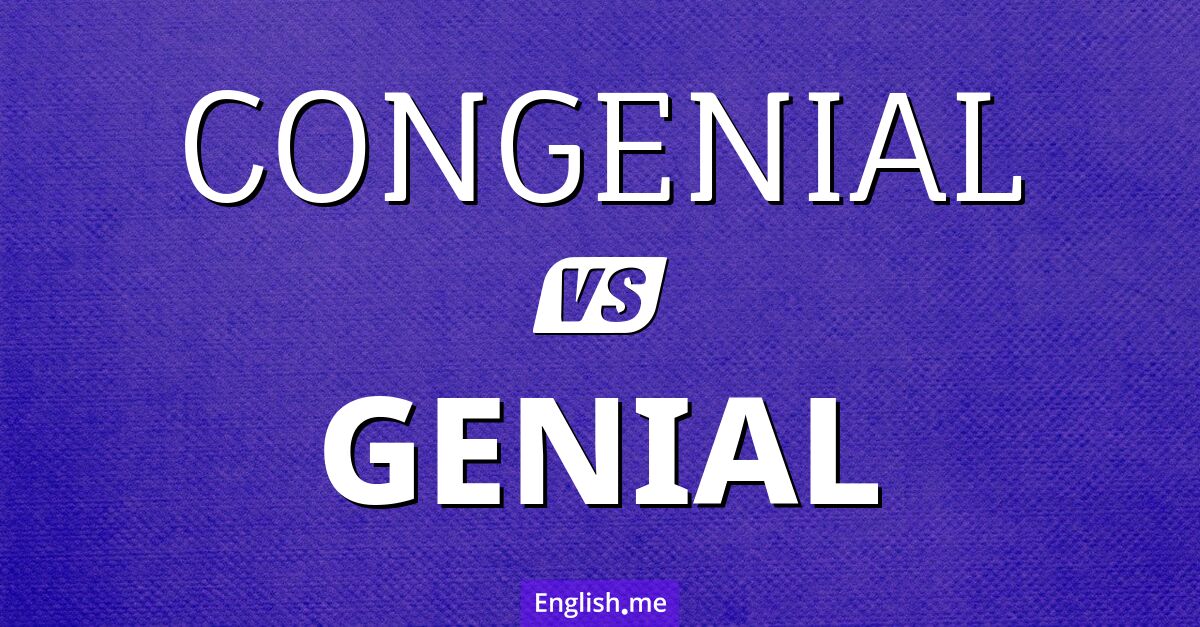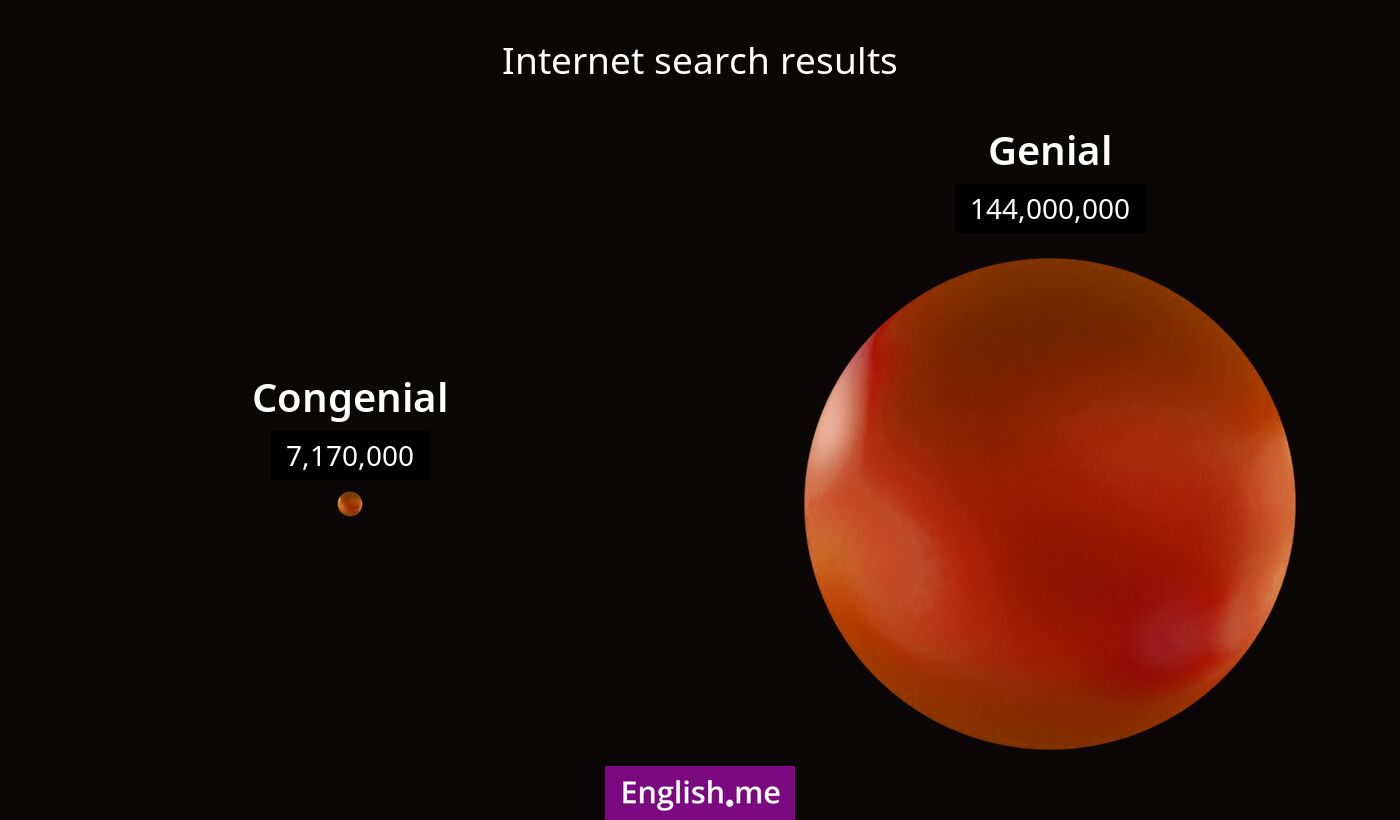"Congenial" vs. "genial": a friendly comparison
Reviewed and edited by  Lloyd Cooper 27/10/2024, 23:56
Lloyd Cooper 27/10/2024, 23:56
English.me team member

 What is similar?
What is similar?
Both "congenial" and "genial" have positive connotations related to being pleasant, friendly, or agreeable. They are often used to describe people or environments that are welcoming and enjoyable.
 What is different?
What is different?
"Congenial" is often used to describe an environment or person's compatibility or suitability with someone else's taste or disposition, implying harmony or pleasantness in shared traits. "Genial", on the other hand, specifically refers to someone's mood or behavior, emphasizing warmth and cheerfulness.
 Which one is more common?
Which one is more common?

 Examples of usage
Examples of usage
Congenial- She found the company of the book club to be very congenial.
- The congenial atmosphere of the cafe made it a favorite spot for locals.
- They were congenial roommates, sharing tastes in music and literature.
- His genial smile put everyone at ease.
- The host of the party was a very genial man, always chatting with guests.
- Despite the rain, she remained in a genial mood throughout the day.

 English
English español
español française
française italiano
italiano deutsche
deutsche 日本語
日本語 polski
polski česky
česky svenska
svenska Türkçe
Türkçe Nederlands
Nederlands